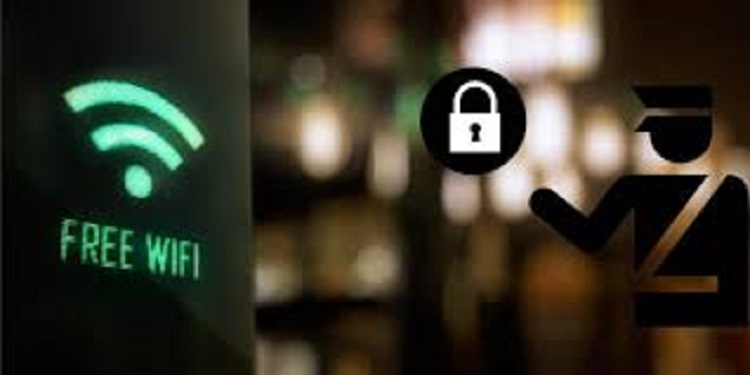Using the internet at home is usually safe and you won’t really face major problems. However, when you’re out and about it’s a totally different story. Whether you want to connect to your local coffee shop’s Wi-Fi to save mobile data consumption or to the airport’s public network, you should be aware of the risks you’re exposed to.
To prevent being put in harm’s way while browsing through the internet you should apply a few strategies and be aware of hacking methods such as DNS spoofing, phishing scams to steal your identity, man-in-the-middle attacks.
Use Secure and Recommended Public Wi-Fi
If you plan on using a public network, choose one that requires filling in details such as a telephone number, email address or creating a username and password. Hackers usually avoid giving out such details so it’s a clean way to filter out the risks of dealing with intruders. Ask the barista at the coffee shop you’re visiting to give you the name and password of their Wi-Fi network.
Beware of Bank Details Theft
When making a money transfer, it’s best to completely avoid using public Wi-Fi networks. Just turn on your mobile data to avoid sensitive information such as credit card numbers or online banking passwords from being intercepted by hackers. It won’t take longer than a couple of min
Another strateutes, so using your mobile data is well worth it.
Turn Off Sharing & Use VPNgy to apply is turning off sharing documents via Bluetooth or AirDrop. You can leave the option active if you’re using your company’s Wi-Fi network. The best way to stop hackers sneaking into your files is by using a VPN (Virtual Private Network). This software completely hides your computers or mobile unit’s identity and location, and it also comes in handy if you want to access sites like Netflix or BBC iPlayer which have geo-locked media.
Check the Terms and Conditions Policy
Although it might sound tedious and a waste of time, always read the terms and conditions attached to the public network you’re using. Even if you’re not tech savvy, you can spot any suspicious data collection protocols and what is the purpose of picking up your data. You can always search the internet to check what exactly you should be looking for but don’t just ignore and click-through. If you’re asked to install certain programs or plug-ins to gain access to the network that’s a major red flag.
HTTPS Rather Than HTTP
When browsing, you’re better off visiting secure websites which provide encrypted security via HTTPS. This will considerably lower the chances of your private details and information being hacked. HTTPS sites can be identified via the green icon in the browser next to the site’s address. You can install the HTTPS Everywhere plugin to safely check security levels of the sites you visit. Keeping your software up to speed and enabling your device’s firewall are great complementary ways to maintain secure internet browsing.
Strong Passwords
Using strong passwords with a variety of letters, numbers and symbols can add to your online accounts’ security levels. When you connect to a public network, never choose to have the network save your credentials and always log out of the accounts before you leave the network.
Personal Hotspot
The best choice you can make, although a bit expensive at first, is to bring your own Wi-Fi. Use a mobile hotspot such as Karma or MiFi or connect to your mobile carrier’s network. This way you’re safe and sound.
